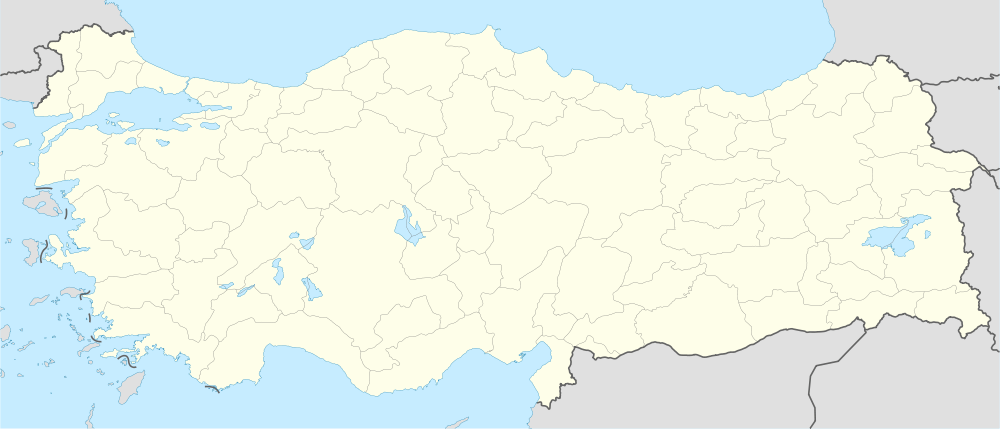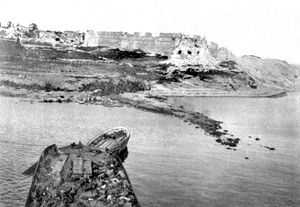Sedd el Bahr
| Sedd el Bahr Seddülbahir | |
|---|---|
| Village | |
 Sedd el Bahr Location in Turkey | |
| Coordinates: 40°02′41″N 26°11′16″E / 40.0447°N 26.1877°ECoordinates: 40°02′41″N 26°11′16″E / 40.0447°N 26.1877°E | |
| Country |
|
| Region | Marmara Region |
| Province | Çanakkale Province |
| District | Eceabat |
| Population (2011)[1] | |
| • Total | 286 |
| Time zone | EET (UTC+2) |
| • Summer (DST) | EEST (UTC+3) |
| Postal code | 17500 |
| Area code(s) | 286 |
| License plate | 17 |
Sedd el Bahr (in modern Turkish, Seddülbahir, meaning "Walls of the Sea" in Ottoman) is a village in the district of Eceabat, Çanakkale Province, Turkey. It is located at Cape Helles on the Gallipoli peninsula in Turkey. The village lies east of the cape, on the shore of the Dardanelles. It was the site of V Beach, the landing zone for two Irish battalions, including one from the SS River Clyde, on 25 April 1915 during the Battle of Gallipoli in World War I.
At the tip of the Sedd el Bahr promontory is the castle, Sedd el Bahr Kale, also known as Eski Kale ("Old Castle") which was built in 1659. The British designated the castle "Fort No. 3" (at the other end of V Beach was "Fort No. 1", also known as Fort Ertugrul) and it was equipped with 10 artillery pieces, including two 28 cm Krupp L/22 guns. The castle was bombarded by the Royal Navy on 3 November 1914 causing serious damage and killing 86 Turkish soldiers.
The British attacked the Turkish forts on 19 February 1915 at the start of the naval operations in the Dardanelles Campaign. Sedd el Bahr was subjected to repeated bombardment and raids by naval demolition teams and the position was deemed too exposed. By the peak of naval operations on 18 March, Sedd el Bahr and Kum Kale, across the straits, had been eliminated as threats.
Sedd el Bahr is mentioned in the classic Irish song The Foggy Dew, second verse: "It was better to die 'neath an Irish sky than at Suvla or Sud el Bar."
Today, the population of Sedd el Bahr village is 286, as of 2011.[2]
